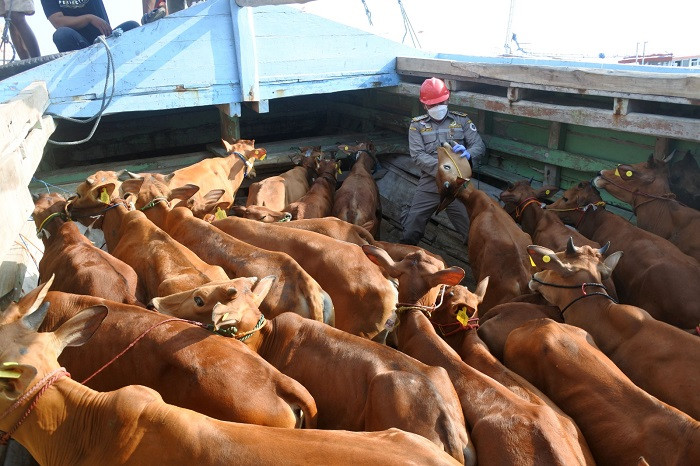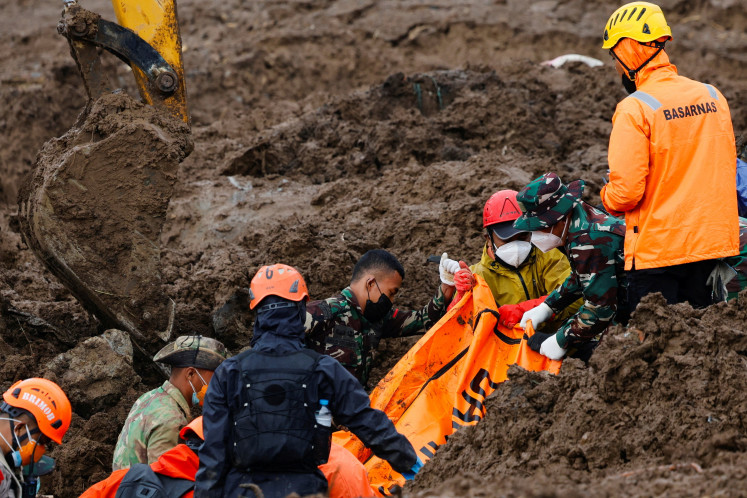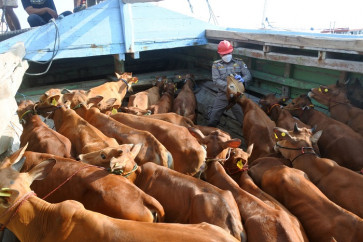Popular Reads
Top Results
Can't find what you're looking for?
View all search resultsPopular Reads
Top Results
Can't find what you're looking for?
View all search resultsAfter Idul Adha, where is animal waste disposed of?
Islam’s Day of Sacrifice is celebrated by slaughtering livestock, especially cattle, but the lack of attention to animal carcass disposal might leave a bad aftertaste.
Change text size
Gift Premium Articles
to Anyone
E
ight men surrounded a brown cow tied to a pole on Thursday morning while dozens of spectators formed a ring around the group on Jl. Syahdan in Palmerah, West Jakarta.
After the men had finally managed to pin the animal down after 10 minutes, those gathered uttered praises to God as the men slit the cow’s throat. They then cleaned up the blood that spurted all over the street.
“This is what happens every year,” Taufik Mansyur, a 51-year-old board member of Musholla Al-Ikhlas, a prayer house in Palmerah, told The Jakarta Post after the qurban, which refers to both the ritual slaughter and sacrificial animals.
Taufik joined millions of other Muslims across the country on Thursday to celebrate Idul Adha, the Day of Sacrifice, by slaughtering cattle, goats and sheep, and then distributing the mean among local residents and the poor.
But the holy feast might leave a bad aftertaste, as the waste from animal carcasses, including body parts and excrement, is simply dumped into local waterways, creating a hazard to both the environmental and human health.
The Jakarta Environmental Agency has been calling on local mosques and residents to properly dispose of the carcasses and other waste from the slaughtered animals, because many often dump these into drains and even rivers to contaminate the water and harm their ecosystem.
“Simply put, the fish in waterways will die if the waste of sacrificial animals are dumped there,” agency head Asep Kuswanto said on June 23, as quoted by CNN Indonesia.



















